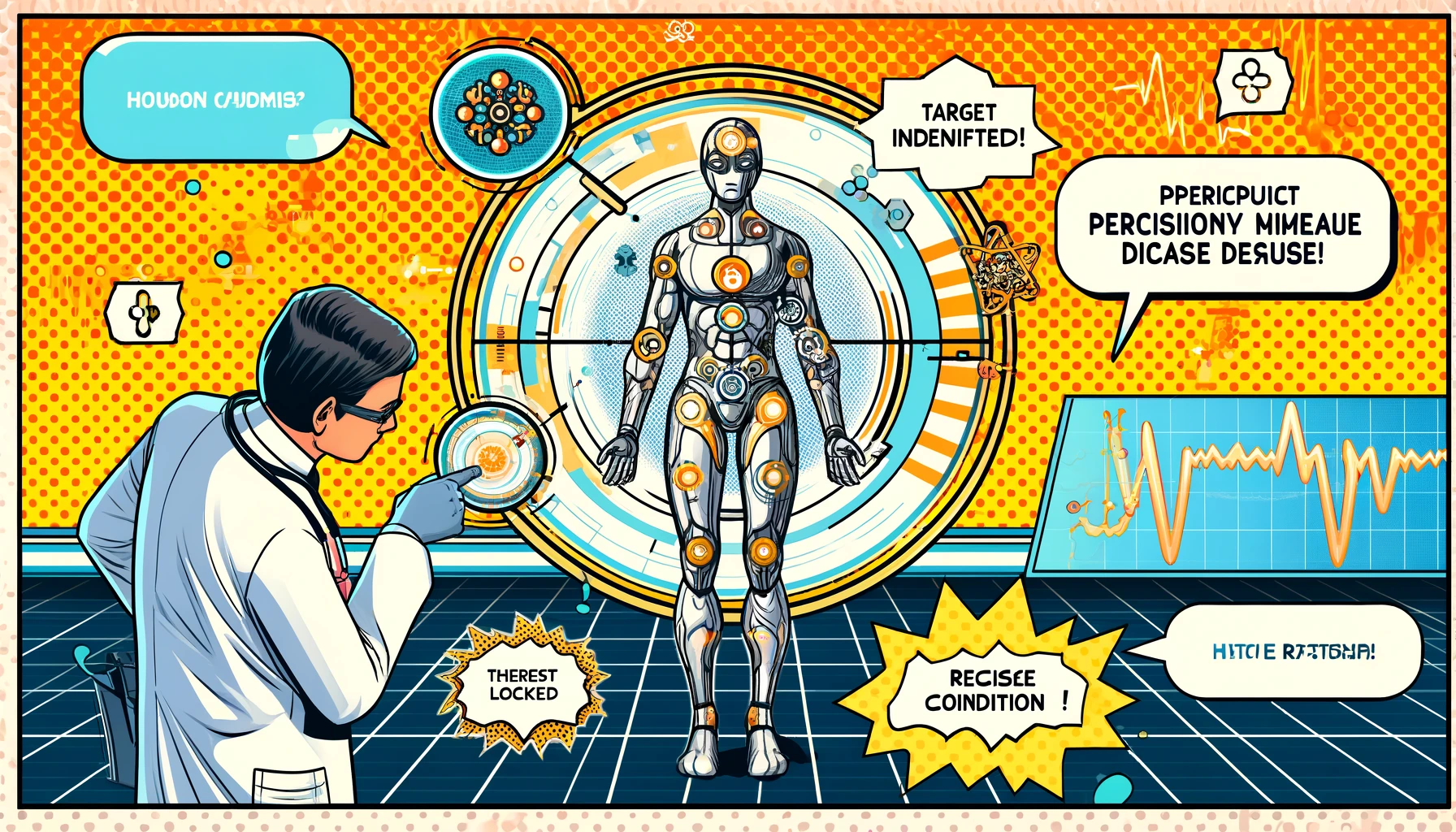
AI-Powered Diagnostic Tools Transform Healthcare Precision disease diagnosis
In 2025, hospitals and medical labs across the globe are rapidly adopting artificial intelligence (AI) to transform how diseases are diagnosed and treated. One of the most groundbreaking areas where this change is happening is in pathology—the science of studying tissue samples to detect illness. Today, AI-powered tools are being used to help doctors detect cancer, liver disease, and other illnesses more quickly and accurately than ever before. From the United States to France, India to Brazil, countries are turning to these smart technologies to deliver faster care and save lives.
This shift toward AI is powered by advanced algorithms that analyze high-resolution images of human tissues. These tools are developed by leading companies like PathAI, Paige, and Ibex Medical Analytics, and are supported by major technology partners including Microsoft, Google, and Philips. These collaborations are helping bring powerful AI systems directly into hospital labs, assisting doctors in reviewing thousands of patient samples daily. As more hospitals use these tools, healthcare is becoming faster, more accurate, and more accessible for people around the world.
For many years, diagnosing diseases from tissue samples has been a slow and detailed job. Pathologists—specialized doctors—have traditionally used microscopes to examine thin slices of tissue for signs of illness. This work is incredibly important but also time-consuming and subject to human error. With the move to digital imaging, hospitals can now scan these tissue samples into computers and let AI assist with the analysis.
AI systems are trained using thousands of digital images of healthy and diseased tissue. Once trained, they can spot extremely small patterns or changes that the human eye might miss. Over the last five years, AI tools have gotten even better and now help identify a wide range of problems—from early-stage cancer to immune system changes or tissue damage. Digital pathology is expanding quickly, and AI is becoming a trusted tool for doctors everywhere.
Key Facts & Details of Disease Diagnosis
AI Tools That Help Doctors Detect Disease AI in pathology uses advanced image recognition to scan digital slides of tissue samples. These systems highlight areas that may show signs of illness—like clusters of cancer cells or signs of inflammation. One example is Paige’s “PanCancer Detect” tool, which recently received a special recognition from the U.S. FDA. This tool can identify multiple types of cancer across more than 40 organs and even detect rare forms. By pointing out exactly where doctors should focus, it helps speed up diagnosis and reduce the risk of missed diseases.
Working Together With Experts AI doesn’t replace pathologists—it works with them. These tools do the repetitive scanning and counting work, freeing doctors to spend more time on complex tasks and patient care. For instance, PathAI’s tools can grade liver disease or count immune cells on slides, tasks that used to take hours. This not only speeds up the process but also makes the results more consistent. Doctors say that having AI support gives them more confidence in their diagnoses, especially for tricky cases.
Real Hospitals Are Already Using AI Across the globe, hospitals are seeing the benefits of AI. In the U.S., Alverno Laboratories uses Ibex’s tools to help diagnose prostate and breast cancer. In Europe, the Institut Curie in France has fully integrated AI into its daily cancer diagnostics. In the Middle East, the Burjeel hospital network is working with Paige to improve cancer care across the region. These AI tools are now trusted parts of hospital labs, helping doctors diagnose patients more quickly and accurately.
What Doctors and Scientists Say Medical experts are enthusiastic about the impact of AI. “It helps us spot things we might miss,” says Dr. David Klimstra, a cancer specialist working with Paige. Sam Terese, the CEO of Alverno Labs, explains that AI cuts down waiting times: “That pain of waiting means you don’t sleep… AI helps us deliver results sooner.” Scientists at Ibex and PathAI report that AI helps reduce errors, making diagnoses more accurate and reliable.
Important Numbers
- In some hospitals, AI has reduced diagnosis times by up to 40%.
- A study found Ibex’s tool caught 13% of cancers that were missed on the first review.
- More than 70% of healthcare leaders believe AI improves both speed and accuracy.
- Paige and Ibex tools are being used in over 20 countries.
- Tech giants like Microsoft and Google are building global platforms to expand AI in pathology.
Analysis & Impact
How AI Is Changing Healthcare AI is helping healthcare systems all over the world become faster and more efficient. Doctors can now detect diseases earlier, make better treatment plans, and ease patients’ fears by providing quicker results. AI tools are especially useful in places with too few pathologists or with large backlogs of cases. With the help of AI, hospitals can give more consistent care and reduce delays—even in remote or underserved regions. The future of pathology is digital, and AI is becoming an essential part of medical diagnostics.
What Challenges Still Exist? Despite the excitement, AI isn’t without challenges. These tools must be carefully tested to make sure they are accurate. If an AI system is trained on poor-quality data, it could give wrong results. That’s why doctors must always double-check the AI’s findings. There are also concerns about patient privacy, especially when sensitive medical data is used for training AI. To address these issues, governments and health agencies are creating strong rules to make sure AI tools are safe, secure, and fair. The FDA, European agencies, and international experts are working together to guide how AI is used in healthcare.
Resources & References
- pharmaphorum.com – Paige’s cancer detection AI gets FDA breakthrough status
- Paige – PanCancer Detect FDA Breakthrough Announcement
- PathAI – PathAI Commences New Year with Strong Foundation Following Key 2023 Achievements
- Philips – AI Integration Updates
- globenewswire.com – ALVERNO LABORATORIES LAUNCHES SECOND AI-POWERED CANCER DIAGNOSTICS PLATFORM POWERED BY IBEX MEDICAL ANALYTICS
- businesswire.com – Prestigious Cancer Center Institut Curie Introduces Ibex Medical Analytics’ AI Tools for Cancer Diagnostics
- Google Research – Advancing medical AI with Med-Gemini
- targeteddonc.com – FDA Grants 510(k) Clearance to Ibex Prostate Detect AI for Prostate Cancer
AI is bringing new power and precision to the world of healthcare, especially in the way we find and treat diseases. These tools are helping doctors around the world do their jobs faster, more accurately, and with more confidence. But like any new technology, AI must be used carefully, with strong rules and constant updates.
Do you think you would trust an AI-assisted diagnosis? How do you feel about computers helping doctors find disease? Share your opinion in the comments and follow us for more updates about how technology is shaping the future of medicine.


